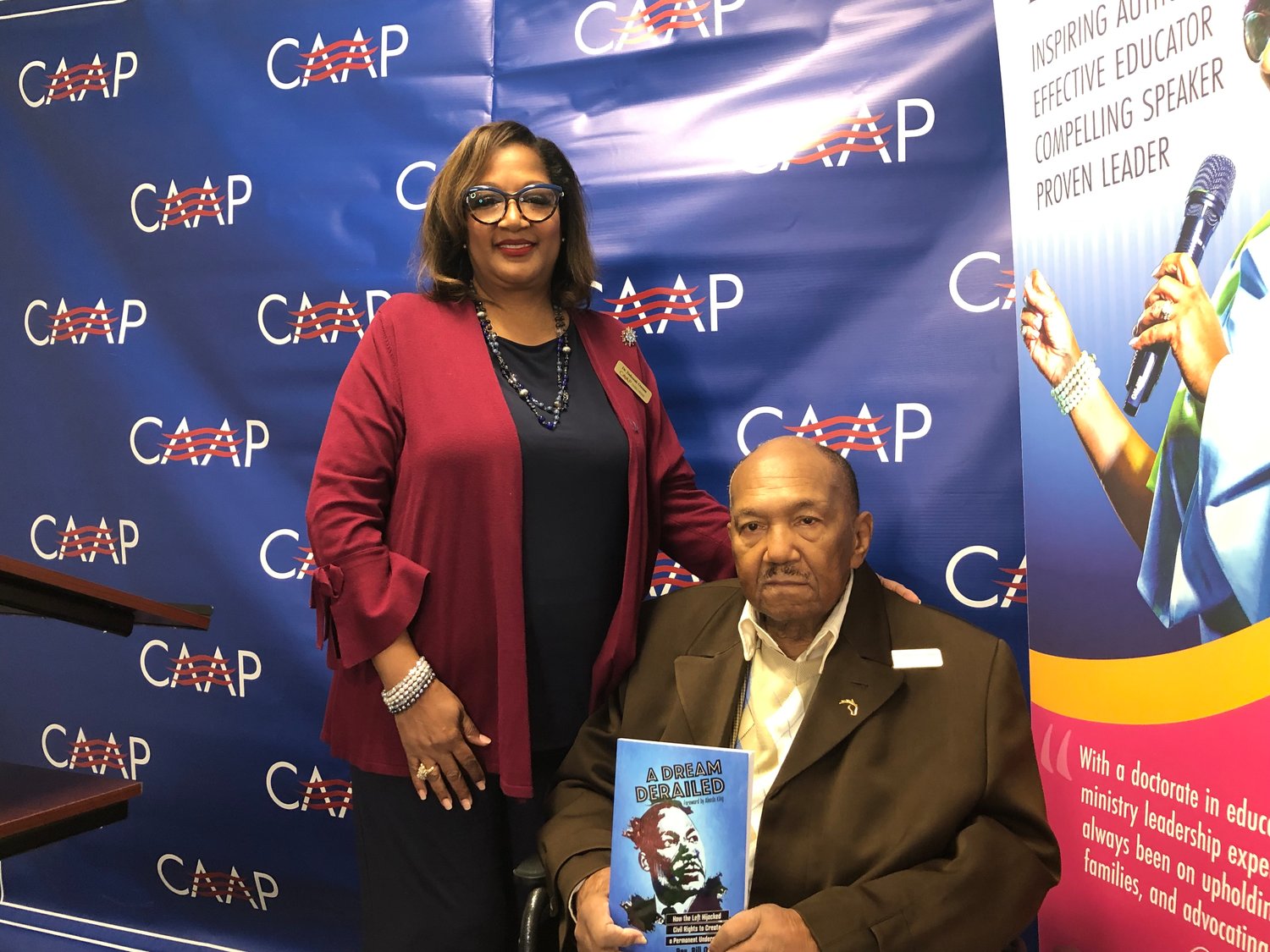MLK associate reflects on civil rights and education
The Coalition of Americans for Actions and Principles on Jan. 27 opened its new office in the Energy Corridor. CAAP describes itself as a national, Black-led organization dedicated to promoting Biblical principles. It began in 1988 as the Association of African-American Pastors, but recently changed its name to reflect the group's broader base of support and its current mission. CAAP's founder, Rev. Bill Owens, has a longer history, including working in the civil rights movement alongside Dr. Martin Luther King, Jr.
This item is available in full to subscribers.
Attention subscribers
To continue reading, you will need to either log in to your subscriber account, below, or purchase a new subscription.
Please log in to continue |
MLK associate reflects on civil rights and education
The Coalition of Americans for Actions and Principles on Jan. 27 opened its new office in the Energy Corridor. CAAP describes itself as a national, Black-led organization dedicated to promoting Biblical principles. It began in 1988 as the Association of African-American Pastors, but recently changed its name to reflect the group's broader base of support and its current mission.
CAAP's founder, Rev. Bill Owens, has a longer history, including working in the civil rights movement alongside Dr. Martin Luther King, Jr.
Owens was a student in the 1960s. He said the Nashville area, home to four Black colleges, was a place that King frequented during the civil rights movement.
While King is today considered an iconic figure in American history, Owens said King didn’t act like that.
“He was just like one of you,” Owens said. “He was very down to earth. No airs.”
Owens also met leaders associated with King, including Ralph Abernathy, Jesse Jackson, and Andrew Young. Abernathy took over for King following King’s assassination in 1968. Jackson later ran for president twice. Young served as an ambassador and later as Atlanta mayor.
“I met them casually,” Owens said. “At that time the black community, the students, were very close-knit. We were fighting the enemy.”
When Owens said “the enemy” he meant the segregationist attitudes of that era.
“I had a white friend I did business with,” Owens said. “He sold televisions. We were best of friends. But when another white person came around, he acted as if he didn’t know me. He was looking at his peers—what would they think of him talking to black man? It was terrible.”
King was assassinated April 4, 1968, on a hotel balcony in Memphis. Owens said King was aware he was a target.
“He was very much aware of it,” Owens said. He described King’s attitude as, “You know that you know something, but you believe in something so much, it’s OK.”
Owens was not at the scene, but was at his lawyer’s office, only a short distance away.
“I walked out of his office,” Owens said. “A man came down the hall and asked me, ‘Have you heard the news? They shot Dr. King.’ We had to try to find out what happened. We didn’t know what happened, and then it was all on the news. Some folks got together and decided to have a riot.”
James Earl Ray was arrested and convicted of the murder. He died in 1998. Percy Foreman of Houston was Ray’s attorney. Owens said a lot of Black people were mad and wanted to fight, but he never went that course.
“I was not going to get violent,” Owens said. “I’m not a violent person. We were in grief, yes but to retaliate, no. They knew if you went to arms, you were not going to win. The white people had all the firepower in everything. People of sound mind knew better because you knew you weren’t going to win.”
Memphis was the scene of the tragedy, but it is also Owens’s hometown, where segregation was a way of life.
“The only white man who stood on our porch was the insurance or bill collector,” Owens said. He told a story of how, coming home one day from college, the insurance man was in the house. The insurance man addressed Owens’s mother informally and never removed his hat. Owens confronted the man, telling him to address her formally and to remove his hat.
So, did the insurance man do things?
“You better believe he did,” Owens said, laughing.
As Americans reflect on Black History Month in February, Owens said it was important for people to understand the history, how they got where they are, and the freedoms they have today.
“Take advantage of those freedoms,” Owens said. “Get in school, stay in school. One wrong person could run your life. I had a good, strong home training. I had a father, and a powerful grandmother and mother. So many Black children that don’t have a father or father figure today. A boy needs to be fathered. That’s my term.”
Owens himself has a 10-year-old son, David.
“I father him all day every day,” Owens said. “It’s a privilege to be a father, and a big responsibility.”
Owens and his wife, Deborah, in 2019 authored a book, “A Dream Derailed.” They have seen the coalition they lead grow and remain involved. CAAP leaders have attended White House conferences with Presidents George W. Bush and Donald Trump. Owens also had a memorable television interview with Don Lemon of CNN, which can be viewed on the web.
Owens remains the founder of the coalition, but his wife Deborah runs things now.
She was shy when they met, Owens said. But she’s not shy now.
“She’s been around me enough,” Owens said, smiling. “With my age and experience, you fear nobody because you come from a place where you know what you’re talking about.”
Keywords
civil rights, education







